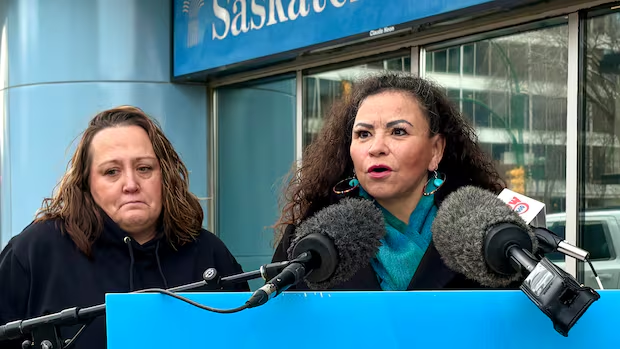More treatment beds needed as overdoses surge in big cities, Sask. NDP says

Listen to this article
Estimated 2 minutes
The audio version of this article is generated by text-to-speech, a technology based on artificial intelligence.
Chantel Huel says her journey to get — and stay — sober took 20 years.
Now she uses her experience to help others into addiction recovery. She’d like it if more policy makers tapped the people who’ve been through recovery for their expertise.
“They’ve never lived on the streets,” Huel said. “They’ve never solicited themselves for a place to sleep. And so they think that they have the answers, but they don’t have people with lived experience helping them to find the answers.”
It’s frustrating work finding help for people with addictions, but it could be easier if there were more treatment beds, Huel said.
The provincial NDP Opposition held a media event with Huel on Friday in Saskatoon to press the government on a recent surge of overdoses in Saskatoon and Regina.
Earlier this week, the health ministry issued toxic drug supply alerts for both cities after reported spikes in overdoses. An updated alert on Friday said tests indicate that drugs with “concerning concentration of fentanyl and benzodiazepines” are circulating in Regina.
The Saskatoon fire department reported responding to more than 100 overdoses and two deaths since Nov. 11.
“We’ve been calling for the massive expansion of the services that we have — not in two years, but now,” NDP MLA Betty Nippi-Albright said.
“It’s needed today so that another life does not die and another community is not mourning.”
Nippi-Albright said the province must expand access to detox beds for inpatient treatment, sober living homes and on- and off-reserve treatment spaces.
The 2025-26 provincial budget included a promise to add 500 addiction treatment centre beds across the province.
In last month’s throne speech, the Sask Party government promised to enact a law allowing involuntary treatment of drug users who pose a danger to themselves or others. Premier Scott Moe said more details about The Compassionate Intervention Act will come when the legislation is introduced.





